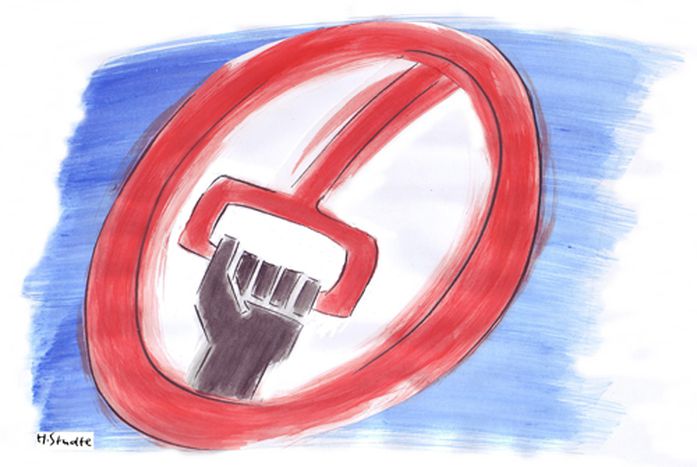
Sarkozite strike
Published on
We're beaming live to you from the scenes of the first strike in France since president Nicolas Sarkozy came into power. Where does the word actually come from, and what are its European counterparts? Term of the week
In the first Sarkozite strike on 18 October, French public transport and energy workers disabled metros, buses, trains and taxis in a 24-hour protest to keep their pension privileges (currently they retire after 37.5 years - 40 in other sectors), which the right-wing government want to reform. The Catalans call a strike being lazy (vaga), whereas their Spanish countrymen see it as what it is - a lack (huelga).
The English agree with the Spaniards - if you 'strike' something, you hit it hard. The old English verb strican means to rub (which developed into today's 'stroke'), or to 'go towards'. With regards to the latter, the meaning of 'strike' changed around 1810 in the seas. Sailors would 'strike' down (or 'lower') a ship's sails, signalling that they refused to 'go towards' the sea. The French grève also has watery origins. If you've been lucky enough to come to Paris whilst the French host (and come fourth) in the rugby world cup 2007, you might've noticed fans congregating in front of big screens in the Place (square) de l'Hôtel de Ville. Back in 1802, this was the Place de Grève. The French word grève (from the Latin 'grava') is a flat sand-covered space on the right bank of the River Seine, later the 'Jobcentre' equivalent for the unemployed to meet each other and get recruited. Bois de grève also means sea board.
Otherwise, being on strike is borrowed in Danish strejke, Polish strajk and German Streik, of whom the latter's strike consequently 'lay something lame' (etwas durch einen Streik lahmlegen). Take care with your written and spoken Lithuanian streikas, or maištas though - remove the accent on 'maištas', and you are left with maistas meaning 'food' (pronounced 'maistas' and 'maishtas' respectively).
There was also a different kind of strike back in Paris on 18 October, where the Sarkozys chose strike day to officially 'no comment' (twice) on their divorce after eleven years of marriage. Jokes resounded from 'Cecilia's on permanent strike' to the Parisians themselves holding banners envying the First French Lady: 'We want a divorce from Sarkozy too.'



